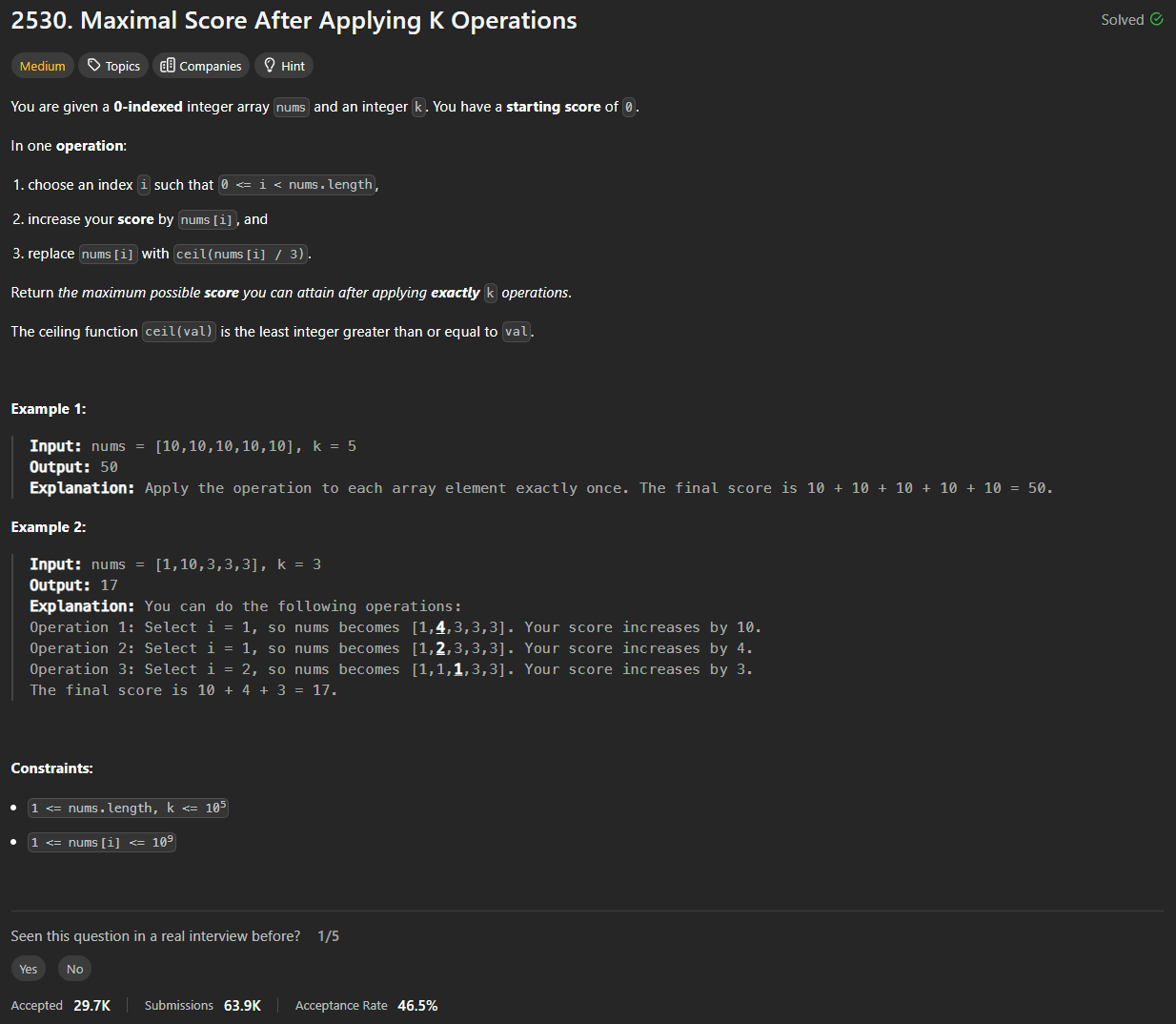Problem of The Day: Maximal Score After Applying K Operations
Problem Statement

Intuition
The problem involves maximizing a score based on elements in a list. My initial thought was to use a greedy approach. By always selecting the maximum element from the list, adding it to the score, and then reducing the element value in some way (as required by the problem), we can maximize the overall score. This approach is based on the idea that larger numbers contribute more to the score, and reducing the largest element iteratively gives the best possible result.
Approach
To efficiently manage the selection of the largest element, we can use a max-heap (implemented as a min-heap with negative values in Python). Here’s the step-by-step approach:
- Push all the elements of the list into a max-heap (using negative values to simulate a max-heap).
- Initialize the score to zero.
- While we have operations left (i.e.,
k > 0), pop the largest value from the heap, add its absolute value to the score, reduce the value by dividing it by 3 (rounded up), and push it back into the heap. - Repeat the process until
koperations are performed. - Return the total score.
Complexity
- Time complexity:
The time complexity is driven by the heap operations. Inserting an element into the heap and removing the max element both take logarithmic time, i.e., \(O(\log n)\). Since we perform these operationsktimes, the overall time complexity is \(O(k \log n)\), wherenis the number of elements in the list. - Space complexity:
We use extra space for the heap, which stores allnelements. Hence, the space complexity is \(O(n)\).
Code
class Solution:
def maxKelements(self, nums: List[int], k: int) -> int:
max_heap = []
max_score = 0
for i, num in enumerate(nums):
heapq.heappush(max_heap, -num)
while k > 0:
val = heapq.heappop(max_heap)
max_score += (-val)
new_val = math.ceil(-val / 3)
heapq.heappush(max_heap, -new_val)
k -= 1
return max_score
Editorial
Approach : Priority Queue
class Solution:
def maxKelements(self, nums: List[int], k: int) -> int:
ans = 0
# Define a max-heap by using a min-heap with negative values
max_heap = [-i for i in nums]
heapq.heapify(max_heap)
while k > 0:
k -= 1
# Retrieve the max element (invert the sign because it's stored as negative)
max_element = -heapq.heappop(max_heap)
ans += max_element
# Add one-third of the max element back to the heap. Rounded up using integer division.
heapq.heappush(max_heap, -math.ceil(max_element / 3))
return ans